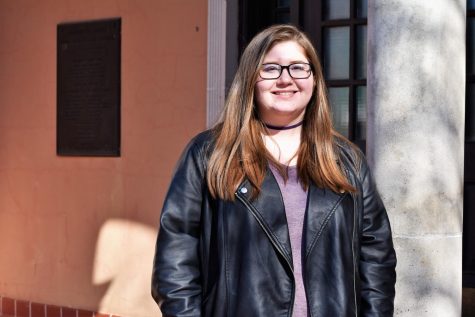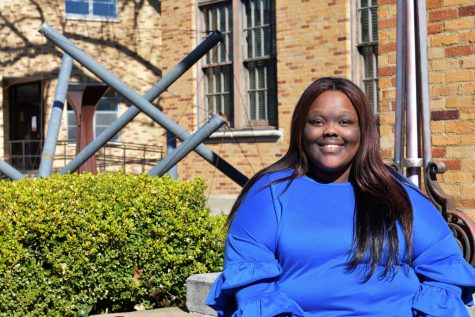Sexual Misconduct Awareness
Sexual violence on college campuses is sadly not a rare thing and neither is other types of abuse, including domestic violence and dating violence.
Rape. Sexual assault. Domestic abuse. Dating violence. In our society, these topics are commonplace in news and media, but how close are they to us really? How close are they to our college campuses? What are our colleges doing to prevent these situations, and what measures are in place if one of these situations does happen on campus or to a student?
A study from Koss, Gidyez and Wisniewski in 1987, as it is included in “Addressing Sexual Assault on College Campuses: Guidelines for a Prevention/Awareness Week” by Robin Wilbourn Lee, found that 1 of every 4 women on college campuses had been victims of sexual assault or attempted sexual assault. An overwhelming majority of victims knew their assailant and more than half of the cases occurred during a date.
According to “Addressing Sexual Assault on College Campuses: Guidelines for a Prevention/Awareness Week” by Robin Wilbourn Lee, it is believed that university communities can benefit from sexual assault prevention awareness programs if the focus is on decreasing the college student’s non-supportive attitudes towards sexual assault. Such attitudes include victim blaming and rape myths.
| 2015 sex crimes | 2016 sex crimes | 2017 sex crimes | 2015 domestic violence | 2016 domestic violence | 2017 domestic violence | 2015 dating violence | 2016 dating violence | 2017 dating violence | |
| University of Dayton | * | 21 | 15 | * | 1 | 6 | * | 5 | 2 |
| Wright State | * | 16 | 15 | * | — | 1 | * | 10 | 8 |
| Miami University | * | 31 | 29 | * | — | — | * | 17 | 7 |
| Wilberforce University | * | 2 | — | * | — | — | * | — | — |
| Cedarville University | * | 1 | 2 | * | — | — | * | — | 1 |
| Wittenberg | * | 8 | 10 | * | — | — | * | 10 | 1 |
| University of Cincinnati | * | 15 | 14 | * | 2 | 2 | * | 10 | 8 |
| Ohio State | * | 86 | 129 | * | 12 | 26 | * | 20 | 48 |
| Delta State | 1 | 1 | — | 5 | 4 | 3 | — | — | — |
* – No records of reports found
— – Zero reports
Dr. Stephanie Bell, Assistant Professor of Counselor Education, states that student health services provides free counseling. There are three counselors available through student health services and sessions are every two weeks, each session being fifty minutes each. If for some reason the student is not comfortable with the three counselors at student health services, some counseling professors will see students in private practice.
“Good self-care and wellness are two of the most important ways victims can help take care of themselves,” says Dr. Bell. She also emphasizes remembering that faculty, police, and counselors will believe you and want to help in these situations.
According to Dr. Bell, if you are aware of a situation of sexual violence, domestic violence or dating violence, some of the best ways to support the victim include being non-judgmental, letting the victim know that your perspective on them has not changed, showing them love and above all else, believing them.
In cases of ongoing domestic violence or dating violence, Dr. Bell says that some of the major ways you can help are by providing resources to the victim, showing emotional support, and helping them find a way out of the situation ( one example Dr. Bell uses is if the victim lives with the abuser and is dependent on the abuser, provide the victim a place to stay until the victim can find a job and housing independent from the abuser.) Again one of the best ways to help is simply believing the victim.
Chief Jeff Johns of the campus police had a lot to say about what the department does to raise awareness and what measures are in place to prevent or help in the event of sexual violence, domestic violence and dating violence.
The department works with student health on campus and other student service-based organizations on campus to hold programs that promote awareness. During the fall, the department works with the housing department to provide workshops on how to stay safe on campus. The police department also offers self-defense classes on two separate dates throughout the year. The focus of these workshops is to empower participants to be able to fend off an attacker.
Some advice Chief Johns had on staying safe was to try to stay in pairs or groups (especially at night) and if a student is alone and uncomfortable walking to their destination, they can call the police department on campus to receive an escort.
Chief Johns also suggests setting up emergency contacts in your smartphone that will be alerted if you use the emergency dial on your smartphone. He advises adding both the Cleveland Police Department and Delta State Campus Police numbers to these emergency contacts. If you do find yourself in a situation where you or someone else is being harmed, do not hesitate to call 911, campus police, or Cleveland Police.
In regards to meeting someone you do not know very well, Chief Johns says that you should meet in a group setting or at the very least alert a close friend of your whereabouts, who you will be with, and how long you plan on being there. He also says it is a good idea to message this close friend throughout the time you are with the person.
Chief Johns stated that he does not feel that students are comfortable reporting crimes, especially sex-based crimes.
“There is a portion that will report, but others may be embarrassed or want privacy, there are lots of reasons these crimes go unreported, but these problems need to be addressed.” — Chief Johns.
He also stresses that students should never hesitate to reach out and report a crime, (sex-based or not). He suggests that if you are not comfortable reporting directly to campus police or Cleveland police, you can report it to trusted faculty, any counselors, your resident assistant, or Ms. Jackson, who is Coordinator of Title IX Division.
The most important thing is that these crimes do not continue to go on unreported.
The Title IX Division, that is headed up by Ms. Jackson, “works to ensure that both faculty/staff and students know that the campus has a zero tolerance for any form of sexual violence.”
Title IX is a protection for those who come forward and report sex crimes.
If you or someone you know is a victim of sexual violence, domestic violence, or dating violence, report the crime(s) to the police department or to a trusted authority figure who can report it.
Together, we can shed light on these acts and work together to prevent them in the future.
Delta State Campus Police:
Call: (662)-846-4155
Cleveland Police:
Call: (662)-843-3611
Student Health Services:
Call: (662)-846-4630
Dr. Stephanie Bell, Assistant Professor of Counselor Education
(662)-846-4363
[email protected]
Chief Jeff Johns, Delta State Police Chief
(662)-846-4155
Julie Jackson, Title IX Coorindator
(662)-846-4151
[email protected]
http://www.deltastate.edu/student-affairs/police/police-services/

Hannah Roberson is a junior majoring in English Education. She is from Greenville, Miss., and after graduation, she hopes to work at her old high school...

Tia Davis was born and raised in Cleveland, Miss., and grew up with a passion for English. She is currently a sophomore at Delta State and seeks a major...



